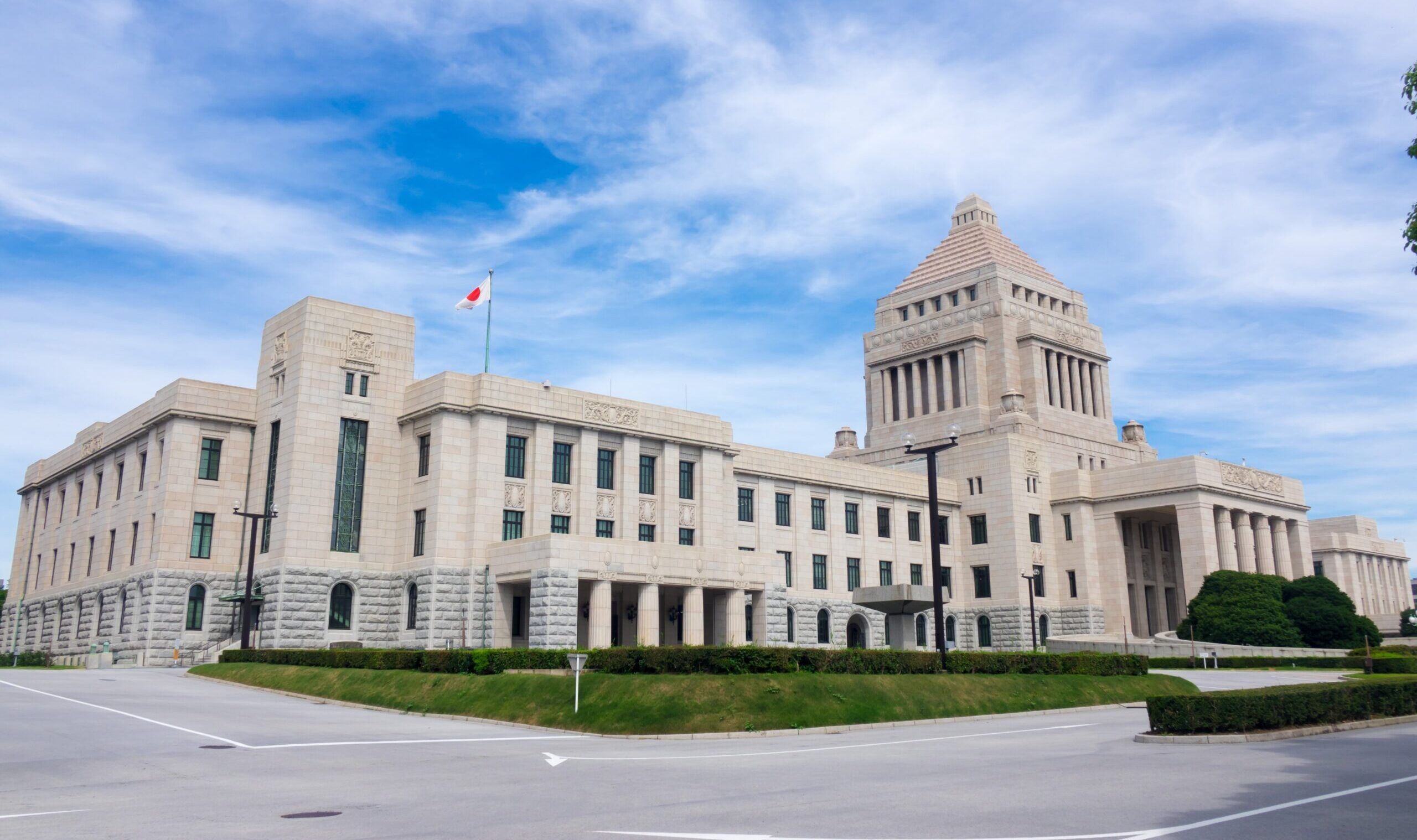Stand Up and Fight Back!
Japanese parliamentarian Haraguchi Kazuhiro talks to The American Conservative about the need for a Japan First movement.

Political alignments worldwide are in a state of flux. Japan is no exception. In recent years, Haraguchi Kazuhiro, a member of the left-leaning Constitutional Democratic Party (CDP) and ten-term parliamentarian in the Japanese Diet, has emerged as one of the most vocal Japan First voices in the archipelago.
Haraguchi’s opposition to Japan’s deep state, as well as to the coronavirus “vaccine,” has earned him the praise of populists around the world. He has not changed his principles in his nearly three-decade political career. What has changed is the way that political lines are drawn, as well as the political awareness of people in Japan and many other countries.
In this exclusive interview, we ask Haraguchi about his views on public health, the Trump administration, and the downsides of Japan’s alliance with Washington.
You first gained prominence abroad when a May 31, 2024, speech you gave at a Stop the WHO rally in Tokyo was picked up by news media worldwide. “I apologize to all of you,” you said, speaking of coronavirus vaccines. “So many have died, and they shouldn’t have.” Can you explain what led you to make this statement?
I announced on my Twitter (X) page in April of 2023 that I had been diagnosed with diffuse large B-cell lymphoma, a malignant form of lymphoma. I have been told by medical experts who examined me that there is a very high probability that my cancer was caused by the coronavirus “vaccine,” specifically by spike proteins in the injected material. I had had three separate injections before developing symptoms. All were Pfizer vaccines, lot numbers FC9880, FD1945, and GD9568.
On June 12, 2023, almost a year before my May 2024 appearance at the anti-WHO rally, I stood up in the Diet and, in the middle of a live national television broadcast, stated that the government was manipulating data on excess vaccine deaths. I also said, without making the cause-and-effect connection explicit, that my physical condition deteriorated—meaning I got cancer—after I took the “vaccine.”
Many government officials in Japan know, and knew, that the “vaccine” was potentially harmful. They pushed it anyway.
Why would the Japanese government knowingly endanger the lives of the Japanese people?
To understand this, it is necessary to understand the nature of the Japanese government in the postwar period. The Japan-U.S. Alliance, the bedrock of Japan’s postwar security and political structure, is not an alliance at all, but a cover for Washington’s control of Japan.
Washington has the authority to put bases anywhere on Japanese soil it wishes. Large swaths of Japanese airspace over Okinawa, of course, but also over much of an area of Honshu stretching southwest and northeast from Haneda airport in Tokyo, is off-limits to Japanese commercial aircraft, because that airspace is reserved for the exclusive use of the American military. The Japan-U.S. Alliance is a “double-containment” arrangement, meant to restrain not just the former Soviet Union, and now Russia, North Korea, and the People’s Republic of China, but also Japan itself.
In this situation, we are at the mercy of Washington neocons and Wall Street corporations and banks. The Osprey, for example, is a dangerous aircraft that has caused at least sixty-four fatalities among American servicemen. Japan is forced to buy Ospreys at a cost of some twenty-two billion yen each (more than one hundred and fifty million USD), with lifetime maintenance costs of more than double that over twenty years. Aegis missile systems cost much more, because Japan must build special vessels as platforms for such systems. (Aegis systems always at the ready on the Japanese archipelago, so-called “Aegis Ashore” systems, were deemed too unsafe and too costly to build on land.) The cost of building just two of those vessels, with work to be completed in 2027 for one and 2028 for the other, is projected to total 790 billion yen, or nearly 5.5 billion dollars. Japan bought four hundred Tomahawk missiles in January of 2024 at a total cost of 254 billion yen (some 1.7 billion USD), but half of the missiles were older models, and none of them, at a cruising speed of just eighty percent the speed of sound, comes close to Russia’s hypersonic missiles at Mach 27.
Foreign military sales (meaning “purchases” in Japan’s case, as we buy from the U.S.) have been increasing rapidly, from around 1.3 billion dollars in 2014 to more than ten billion dollars in 2023. The 1985 Plaza Accords were designed to hamstring Japan’s economy by making the yen expensive, thus driving up the cost of Japanese products abroad. Blackrock and other Wall St. firms siphon off Japanese taxpayer monies because Japanese politicians, such as former prime minister Koizumi Junichiro, privatize sectors of the Japanese political economy (in his case, the post office savings network) so that foreign “investors” can get access to Japanese citizens’ hard-earned money.
This helps explain why the political class in Japan does nothing to protect Japanese people, but instead does the bidding of those with money, particularly foreigners, and above all, Washington and its minions. Consider that the Japanese government extended to overseas pharmaceutical companies the extraordinary privilege of exempting them from all claims from damages for the coronavirus “vaccine.” Also, I worked to have the Japanese government issue a special approval for the use of ivermectin for the coronavirus. But some said that anyone suggesting that ivermectin be used to treat coronavirus infection was a “conspiracy theorist.” I suspect that those in the WHO who were critical of ivermectin may have been paid off.
I asked someone in the Ministry of Health, Labour, and Welfare in Japan why the approval of ivermectin was being held up, and was told that “someone is blocking it.” There is an organization under the authority of the Ministry of Health, Labour, and Welfare called the Pharmaceuticals and Medical Devices Agency, which is responsible for ensuring the safety of drugs and medical equipment. But some eighty percent of the budget for this agency comes from pharmaceutical companies. The name of the agency in Japanese is prefaced with “Dokuritsu gyosei hojin,” which means “independent administrative institution,” but, clearly, the Pharmaceuticals and Medical Devices Agency has no independence whatsoever.
What can Japan do to regain its independence and protect its people?
I admire President Donald Trump for all he has done to protect Americans and to make America great again. I also admire Food and Drug Administration director Robert F. Kennedy Jr. for his devotion to health and environmental well-being.
We need a Trump and an RFK Jr. in Japan. We need people who are willing to stand up for workers, for common men and women, for common sense. We don’t need any more propaganda from the government or the media. We need people who will tell the truth and do what is right for average citizens, not for big corporations.
Some inspiration for Japanese independence comes from Okinawa, which remained under American occupation until 1972, twenty years after the rest of Japan was nominally restored to Japanese sovereignty. But Okinawa continues to bear the heaviest burden in Japan in terms of hosting American military bases. The people of Okinawa, the people of Japan, are not anti-American. We love the USA. We love freedom and justice and truth, just as much as Americans do. We want to defend ourselves, to take responsibility for our own country. We can’t do this when Washington’s interests always come first.
This is why the Senkaku Islands are not properly defended from near-daily Chinese incursions—not because Japanese people lack the will to fight, but because Washington doesn’t want to risk a nuclear war with China over islands it considers of little to no importance. But the Senkakus are our land. We want to fight for them. We want to fight to protect what we love.
A five-member, non-partisan coalition of parliamentarians, with myself as the representative member, has made three aerial excursions to the Senkakus, which are part of Ishigaki City in Okinawa Prefecture. My own party tried to stop me from going. But my position is, why should I not be able to visit the territory in my own country? Our coalition of five parliamentarians believes firmly in the name we chose for ourselves: “Alliance of Parliamentarians Taking Action to Protect National Sovereignty and the National Interest.”
We need more people like this. We need people to stand up to politicians in Tokyo, in Washington, in Beijing, anywhere the well-being of the Japanese people is under attack. And not just the Japanese people. We want an anti-global network worldwide. I admire BRICS and hope that more and more people around the world will be brave, stand up, and fight against the dehumanization of human beings.
The post Stand Up and Fight Back! appeared first on The American Conservative.

